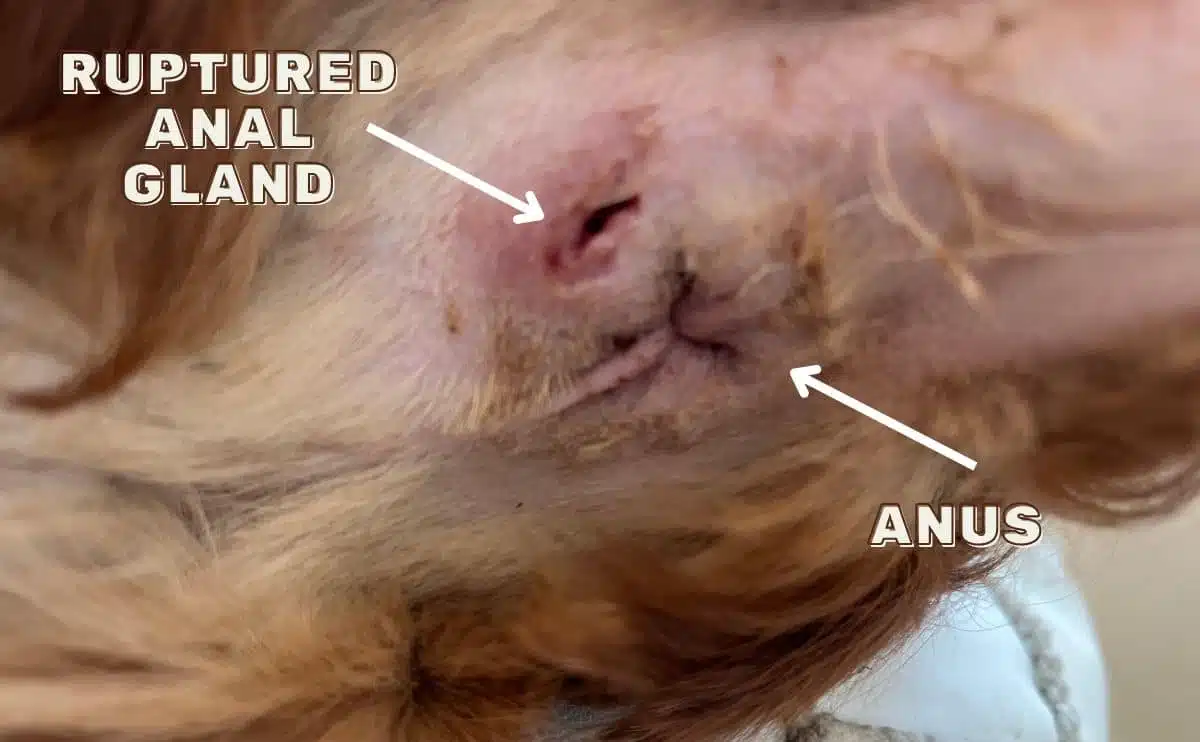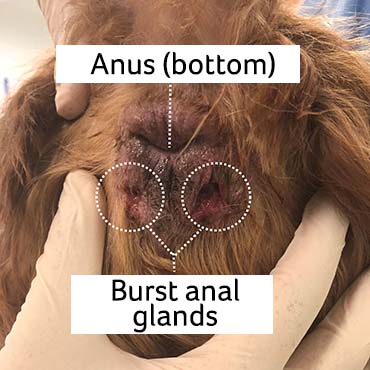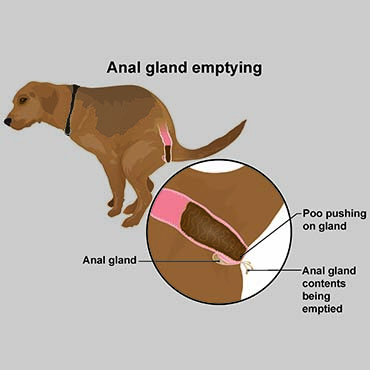Understanding Dog Swollen Anus: Causes and Symptoms
Causes of Dog Swollen Anus
Swelling in a dog’s anus can be indicative of various underlying causes. Here are a few possible reasons:
- Anal Gland Issues: The most common cause of a swollen anus in dogs is anal gland problems. Anal glands can become impacted or infected, leading to swelling and discomfort.
- Rectal Prolapse: This occurs when a portion of the rectum protrudes from the anus. It can be caused by excessive straining during bowel movements, constipation, or underlying health conditions.
- Other Health Conditions: Certain diseases, such as diarrhea, intestinal parasites, tumors, or inflammatory bowel disease, can cause swelling in the anal area.
Symptoms to Look Out for
It’s important to recognize the signs and symptoms associated with a swollen anus in dogs. These may include:
- Visible Swelling: Observe if the anus appears red, swollen, or protruding.
- Pain or Discomfort: Dogs may exhibit signs of discomfort, such as scooting or excessively licking the anal area.
- Changes in Bowel Movements: Keep an eye out for diarrhea, constipation, or difficulty defecating.
If you notice any of these symptoms, it is advisable to consult a veterinarian for a proper diagnosis and appropriate treatment. Home remedies or over-the-counter treatments should only be considered under veterinary guidance to avoid exacerbating the condition.

Home Remedies for Dog Swollen Anus
If you notice that your furry friend has a swollen anus, it’s important to address the issue promptly. While it’s always best to consult a veterinarian for an accurate diagnosis and appropriate treatment, there are a few home remedies you can try in the meantime to provide relief for your pet.
Natural Remedies for Dog Swollen Anus
- Warm Compress: Apply a warm compress to the swollen area for about 10 minutes, a few times a day. This can help reduce inflammation and provide comfort to your dog.
- Aloe Vera Gel: Applying a small amount of pure aloe vera gel to the swollen area can have soothing and anti-inflammatory effects.
Dietary Changes to Alleviate Swelling
- Increase Fiber: Adding fiber-rich foods, such as cooked pumpkin or sweet potato, to your dog’s diet can help promote regular bowel movements and relieve anal gland issues.
- Hydration: Ensure that your dog is well-hydrated by providing fresh water at all times. This can help soften stools and prevent constipation.
Remember, these home remedies are temporary solutions and should not replace professional veterinary care. If your dog’s swollen anus persists or worsens, it’s crucial to seek veterinary attention to identify and treat the underlying cause.

Prevention and Care Tips for Dog Swollen Anus
Proper Hygiene and Cleaning
Maintaining proper hygiene and cleaning is crucial when it comes to preventing and treating a dog’s swollen anus. Here are some tips to follow:
- Regular Bathing: Give your dog regular baths to keep their anal area clean and free from bacteria or debris.
- Gentle Wiping: After your dog defecates, gently wipe their anal area with a clean, damp cloth or baby wipes to prevent any residue from causing irritation.
- Trimming the Hair: Keep the hair around the anus trimmed short to prevent feces from getting stuck and causing discomfort or infection.
Preventive Measures to Avoid Recurrence
To prevent the recurrence of a swollen anus in dogs, consider the following preventive measures:
- Dietary Adjustment: Ensure your dog’s diet is balanced and provides adequate fiber to regulate bowel movements and prevent constipation.
- Avoiding Allergens: Identify and eliminate any potential allergens from your dog’s diet or environment, as they can contribute to anal inflammation.
- Regular Vet Check-ups: Schedule regular check-ups with your veterinarian to monitor your dog’s overall health and address any potential anal gland issues before they worsen.
Remember, if your dog’s swollen anus persists or worsens despite home care, it is important to consult with your veterinarian for a proper diagnosis and treatment plan.
When to Seek Veterinary Help
When dealing with a dog’s swollen anus, it’s essential to know when to seek veterinary assistance.
Signs Indicating the Need for Veterinary Assistance
- Severe or Persistent Swelling: If the swelling is severe, persists for more than 24 hours, or worsens, it’s crucial to consult a veterinarian.
- Pain or Discomfort: If your dog displays signs of pain, discomfort, or seems to be in distress, immediate veterinary attention is necessary.
- Difficulty Defecating or Urinating: If your dog experiences difficulty passing stool or urine, it may indicate a more serious underlying condition that requires medical intervention.
Treatment Techniques and Medications
While home treatment options may offer temporary relief, it is always advisable to consult with a veterinarian for proper diagnosis and treatment. Treatment techniques may include:
- Topical Medications: The veterinarian may prescribe topical ointments or sprays to reduce inflammation and provide pain relief.
- Dietary Adjustments: Changes to the dog’s diet, such as increasing fiber intake and ensuring proper hydration, can help alleviate some symptoms.
- Warm Compress: Applying a warm compress to the affected area can help soothe discomfort and reduce swelling.
Remember, prompt veterinary attention is essential to accurately diagnose the cause of the swollen anus and develop an appropriate treatment plan for your furry friend’s well-being.

Conclusion
Taking care of your dog’s health is of utmost importance, and if you notice your dog has a swollen anus, it’s crucial to address the issue promptly. While there are home remedies you can try, it’s always best to consult with a veterinarian to get an accurate diagnosis and proper treatment plan. Remember, home remedies may provide temporary relief, but they may not address the underlying cause of the swollen anus.
Ensuring the Wellbeing of Your Dog
To help your dog with a swollen anus at home, consider the following:
- Cleanliness: Gently clean the area around the anus with warm water and a mild soap. Avoid using harsh chemicals or excessive pressure.
- Dietary adjustments: Ensure your dog is getting a well-balanced diet with adequate fiber to regulate bowel movements and prevent constipation.
- Hydration: Ensure your dog has access to fresh water at all times to maintain proper hydration.
- Monitor for improvement or worsening of symptoms. If the condition persists or worsens, seek veterinary assistance immediately.
Frequently Asked Questions
Q: Can I use over-the-counter creams to treat my dog’s swollen anus?
It is not advisable to use over-the-counter creams without veterinarian guidance, as they may not be suitable for your dog’s specific condition.
Q: What could be the causes of a swollen anus in dogs?
Common causes can include allergies, anal gland issues, infections, tumors, or digestive problems. A veterinarian can help identify the underlying cause.
Q: Should I be concerned if my dog’s anus appears swollen?Yes, it is important to address any swelling or discomfort in the anus promptly, as it could indicate an underlying health issue that requires attention.





